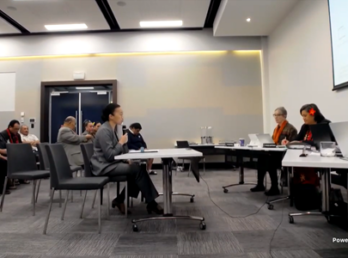COVID-19: Implications For Private M&A articles
Date
15 Apr 2020
Related Expertise
COVID-19: Implication for Private M&A
It’s still too early to predict the full extent of New Zealand’s economic downturn, as a result of COVID-19 and the lockdown.
With only essential services currently allowed to operate, many industries across the country are under extreme pressure, and will be for some time. Already we are witnessing the impact, with companies implementing OPEX-reducing measures, redundancy programmes, distressed sales, and in some cases winding up divisions, in an attempt to stem losses and improve cash flow.
For parties involved in corporate transactions, including M&A, the outbreak has a number of implications.
In this article, we take a quick look at some of the key issues COVID-19 presents for private M&A.
Implications for Private M&A
1. Material adverse change
The “material adverse change” (MAC) clause is receiving increased attention. Moving forward, it’s likely to become a more prominent feature of NZ’s private M&A landscape:
- MAC: In broad terms, a MAC clause allows a buyer to avoid settlement if an event occurs, after the agreement date, which negatively impacts the target’s business. In many cases, an objective threshold must be met in order for the change to be ‘adverse’ for the purposes of the clause (e.g. a specific percentage or dollar decline in the target’s earnings or net asset value must have occurred). MAC clauses will also generally spell out certain excluded trigger events (e.g. changes in economic conditions, events affecting an industry generally, natural disasters, national emergencies, matters the buyer was aware of etc).
- A matter of contract: Whether COVID-19 (or the lockdown) triggers a MAC will depend on the context and wording of the MAC clause itself.
- Looking ahead: Parties who are negotiating MAC clauses should consider how COVID-19-related risk is allocated between them. A buyer will now likely want the MAC clause to give the buyer a termination right if the target suffers a MAC due to COVID-19 or a similar event. A seller, on the other hand, will now likely require the MAC clause to expressly exclude COVID-19 or a similar event from the scope of triggering events (e.g. the MAC clause associated with Morgan Stanley’s recent acquisition of E*Trade Financial Corp., albeit in the public M&A context). A possible middle-ground might be for parties to agree on minimum time and financial-based thresholds above which COVID-19 or a similar event will trigger their MAC clause.
2. Due Diligence
Comprehensive due diligence (i.e. financial, commercial and legal investigations into a target business) is all the more critical in the context of COVID-19:
- COVID-19-related risk: A buyer’s investigations will now likely focus on the extent to which the target is exposed to COVID-19-related risk and what mitigation steps have been adopted by the seller.
- Targeted review: A buyer may now wish to canvass the following areas in its due diligence: the target business’s financial condition and solvency risk; eligibility for the Government’s COVID-19 economic package; remote-workforce capabilities; data security and privacy; employee entitlements; exposure to company, industry and regulatory (i.e. ‘change in law’) risk; crisis management processes; COVID-19 contingency, business continuity and mitigation plans; supply chain resilience; durability of customer and supply contracts; ‘force majeure’, suspension and termination rights under commercial contracts; existing insurance and business interruption policies; business health and safety measures and compliance; forecast CAPEX and OPEX; and status and location of leased or owned premises.
- Medical: Anecdotally, some buyers have expressed an interest in engaging health professionals to conduct medical due diligence on the target’s staff.
3. Financing
COVID-19 presents financing-related issues for buyers and sellers in the private M&A context:
- Buyers: The impact of COVID-19 on solvency and revenues may affect the liquidity of many buyers and their ability to obtain acquisition financing. Lenders are now likely to impose more stringent covenants when offering new facilities. Buyers should carefully review the terms of their financing arrangements, in particular around the risk of “continuing obligations” under the sale agreement and the loan agreement, if one agreement should remain in force and the other is terminated.
- Sellers: A financially impacted buyer presents a credit risk to the seller. To address this risk, it’s foreseeable that sellers will undertake more in-depth ‘reverse’ due diligence, on the buyers’ solvency and ability to secure funding. A seller may now also consider additional protective measures, such as the purchase price being paid into escrow, having a guarantor of the purchaser’s obligations in the sale agreement, or termination fees being payable by the purchaser.
4. Purchase price adjustments and deferred consideration
The traditional fixed pricing approach for deals, in this climate, is likely to carry more risk for buyers:
- Post-settlement purchase price adjustments: Post-settlement purchase price adjustments may now be a more attractive option, as they can account for a target’s deterioration prior to settlement and the state of the business at settlement. However, price adjustments aren’t immune to COVID-19 – the historically-calculated average ‘peg’ or ‘target, upon which working capital adjustments are typically based, for example, is now not likely to be appropriate. Adjustments based on revenue or earnings may be more appropriate.
- Deferred or contingent consideration: Deferred or contingent consideration mechanics, whereby all or a portion of the purchase price is determined by reference to the business’s future performance (e.g. an earnout), may grow in popularity. They are widely recognised as being a useful tool to help bridge the valuation gap, and allocate risk, between parties.
5. Undertakings, Representations and Warranties
Both sides will need to consider carefully the undertakings, representations and warranties being provided:
- Buyers: Buyers will understandably seek increased warranty protection around the target’s financial performance and position, and its ability to service debt and collect debtors. They may also seek additional warranties in relation to the status of key supplier and customer contracts (and, in particular, the counterparties’ termination rights, particularly due to ‘force and majeure’) and the extent of COVID-19’s impact on the target’s business.
- Sellers: With COVID-19, the seller’s ability to give certain warranties and undertakings may now be compromised (e.g. efficacy of the supply chain; compliance with privacy laws and data security policies (in circumstances where the target’s workforce is working remotely); running the business in the ordinary course (i.e. in circumstances where the seller is likely taking active steps to manage the business’s working capital, maintain liquidity and (if required) refinance debt) – perhaps this is now the ‘ordinary course’?! A seller may try and avoid giving warranties at settlement and look to qualify warranties by materiality thresholds and the extent of its actual knowledge. In addition, it’s foreseeable that a seller will insist on a general COVID-19-related exclusion of liability. A possible middle-ground might be for parties to agree on a targeted, COVID-19-related indemnity for specific, identified risk.
6. Warranty & Indemnity Insurance
- Exclusion of COVID-19-related losses: Anecdotally, warranty & indemnity insurers are taking steps to exclude COVID-19-related losses from their W&I policies, on the basis that it is a known risk. This makes the allocation of risk between parties all the more critical. Without insurance cover for these exclusions under the W&I policy, buyers may conceivably push for a reduced purchase price or targeted indemnities from the seller.
7. General
- Buyer caution: Many buyers are citing COVID-19 and the lockdown as justification to end further negotiations altogether. In other circumstances, buyers are adopting a cautionary ‘wait and see’ attitude and buyer boards and shareholders are holding off from giving final transaction approval – current circumstances are being used as leverage to put negotiations ‘on ice’ in the hope a more favourable purchase price can be obtained once conditions settle.
- Valuation and strategy: Current volatility is creating valuation and strategic issues for buyers. For deals priced on revenue or earnings expectations, a buyer’s ability to run reliable financial models and valuations is now compromised – buyers will understandably want to re-assess the methodology used to value a target. The current environment is also giving buyers pause to re-assess their acquisition strategy. Partial (as opposed to 100%) acquisitions may now be preferable, and sellers may well be wise to remain open to such alternatives.
- Logistical challenges: The lockdown presents a raft of logistical challenges for parties and advisory teams, and will undoubtedly impact timing on all key areas of private M&A (i.e. due diligence, financing, securing third party consents and regulatory approvals, management and stakeholder meetings, site visits, negotiations and settlement). Open lines of communication, and pragmatic expectations, across parties and advisory teams are critical.
- Dates: Deal teams and advisors will need to carefully assess transaction milestone dates. It is likely that condition and settlement dates will need to be pushed out.
- Technology: Technology is now needed more than ever to help facilitate continued deal flow. Parties and advisory teams will derive obvious benefits, and experience reduced disruption, with capabilities such as extranet or portal functionality (e.g. Dropbox), remote conferencing facilities (e.g. Zoom, Teams, Skype etc), document collaboration software, virtual data rooms, transaction management software and electronic signature (e-signing) software.
We recommend you seek specialist legal advice, as soon as possible, in relation to your private M&A deal.
The above overview has been provided for general information purposes only. It is not, nor is it intended to be treated as, legal advice and is subject to change without notice.
Subscribe
Get insights sent direct to your email.




















